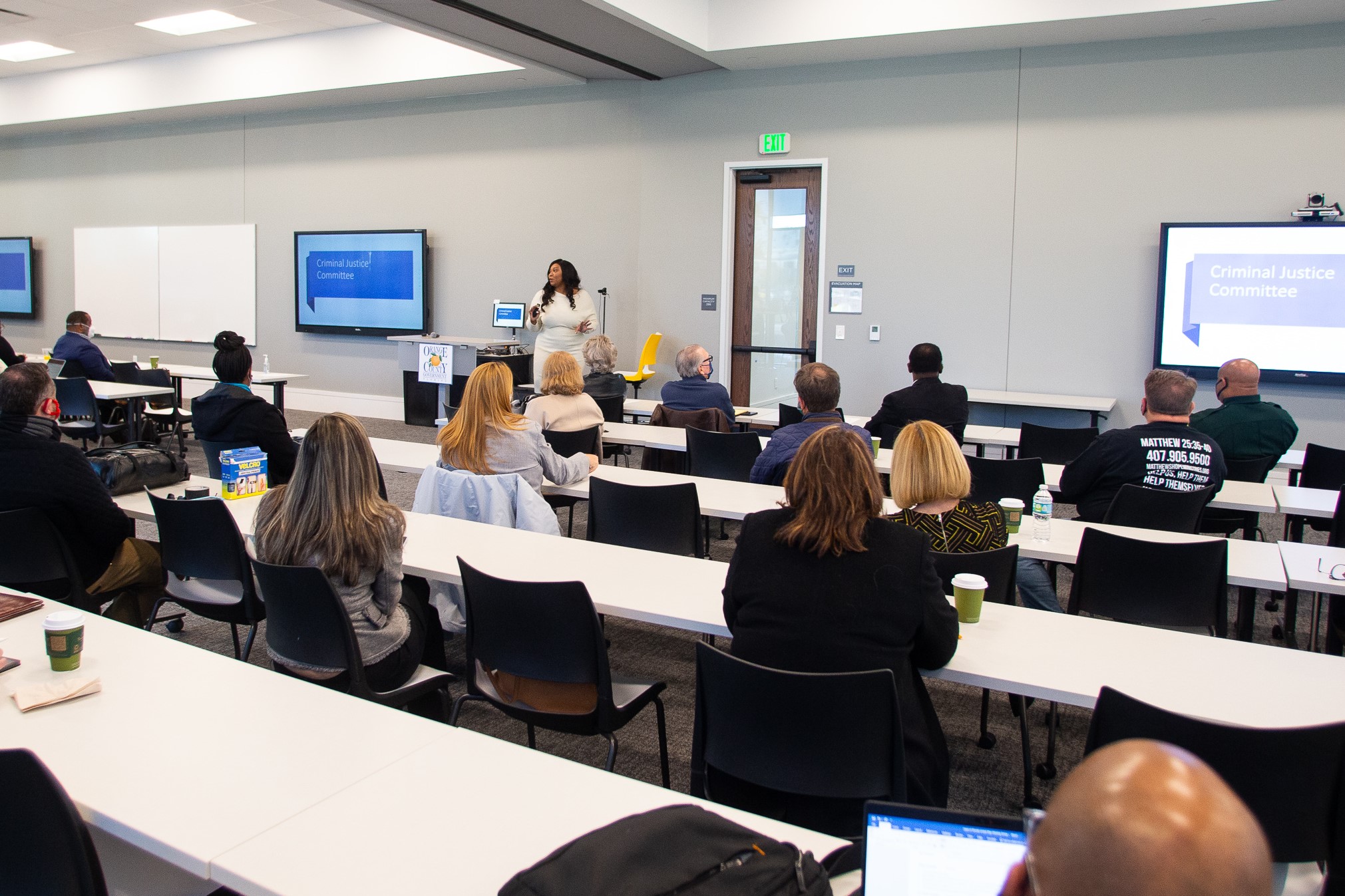
Keeping Mentally Ill Offenders Out of Jail Critical in Improving Health System of Care
It’s a reality that most jails across the country house more mentally ill people than do hospitals. More than 40 percent of inmates have a mental health diagnosis at the Orange County jail, making the jail Central Florida’s largest mental health care provider. This startling statistic is just one example of the need to fix the county’s mental health and addiction needs.
In May 2021, Orange County Mayor Jerry L. Demings and the Board of County Commissioners tasked the Heart of Florida United Way to get with thought leaders to study the mental and behavioral health care system in Orange County.
This past January, the task force unveiled a comprehensive report to divert the mentally ill from going to jail, rather than getting the help they need. Titled Orange County Mental and Behavioral Health System of Care Community Analysis. The report’s purpose was threefold: conduct a cross-sectional analysis to determine the validity of the findings of an initial analysis completed by the County’s Mental Health and Homeless Issues Division in 2021; identify remaining system gaps; and develop recommendations for system improvement.
Part of the analysis focused on the findings of the Criminal Justice Committee, one of five committees formed to create the final report. The Criminal Justice Committee prepared a summary of resources and gaps by intercept points, including community services; law enforcement; initial court hearings/initial detention/ jails/courts; and re-entry/community corrections.
The first two intercept points — community services and law enforcement — are especially important because these are where those who suffer from mental illness or substance abuse issues come into contact with civil servants BEFORE they wind up in jail. At the community services intercept point, the opportunity exists to divert people into local crisis care services when needed. At the law enforcement intercept point, the opportunity exists for law enforcement and other emergency service providers to divert people to treatment instead of arresting them.
“Thousands of individuals in our community are dealing with mental health and/or addiction issues, and many of them are either in the streets or in prison — two places they definitely should not be,” explained Mayor Demings. “This overtaxes our jail and hospital systems, and it also exacerbates homelessness and crime.”
Donna Wyche, Manager of the Orange County Mental Health and Homeless Issues Division, recently gave a presentation of the report findings to the Board of County Commissioners and received approval to move forward (with the support of the Heart of Florida United Way) with implementation of the recommendations in the report. She stressed that jail diversion is a huge part of the overall picture because it ties into many of the gaps we need to fill as a community.
“Mental and behavioral health issues, when not treated early and/or properly, lead to criminal justice outcomes,” she asserted. “Once those with serious mental health concerns or substance abuse issues have a criminal background, they can’t get jobs or housing, which compounds their mental health and substance abuse issues. It’s a vicious cycle.”
Creating a High-Performing Community
Unfortunately, jails are full of people with serious and persistent mental illness and addiction, and Orange County citizens with these issues are ending up there because not enough alternatives exist. In 2003, Orange County underwent a jail expansion, and simultaneous to opening a female detention center, it opened the Orange County Central Receiving Center, where mentally ill individuals could be taken for treatment.
As a result, the County reduced its jail population by at least half … and also saved tens of millions of dollars in jail costs by investing in treatment. The problem is, despite the Central Receiving Center, the County does not have the bandwidth needed to service its 1.4 million population. The goal of the report was to identify what the system needs to become a high-performing community.
“We want to offer proper mental health assessments and interventions early, and also train law enforcement to recognize mental and behavioral health issues so they can navigate these individuals to a treatment resource instead of taking them to jail,” explained Wyche. “We need to build out our resources and fill the gaps where they exist.”
Wyche believes the County can accomplish a great deal moving forward. “It’s the right thing to do, and with Mayor Deming’s support, we’re going to get this done,” she affirmed. “We have a good foundation, and we have the capacity to do some things quickly and also establish additional long-term goals with community stakeholders.”
With the BCC approving implementation of the report’s recommendations, the County will partner with Heart of Florida United Way to host stakeholder meetings and workgroups and begin implementation of the report’s recommendations.
“We must move our mental and behavioral health care system upstream and become more innovative in the way we approach this,” said Mayor Demings. “This isn’t a ‘one-and-done’ situation; we need to follow up with both short- and long-term solutions and have strategic planning in place for the next five years. It’s going to take the entire community working together to solve this problem. We cannot do it alone.”
For more information on the County’s Mental Health and Homeless Issues Division and local resources, go to the Orange County website.
